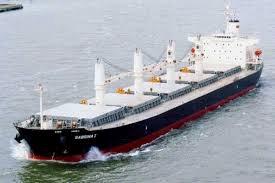 The agreement between Ukraine and Russia, brokered by the United Nations and Turkey is now in jeopardy. Resumption of ocean shipping of wheat and other agricultural commodities from Black Sea ports still operated by Ukraine reduced the price of wheat.
The agreement between Ukraine and Russia, brokered by the United Nations and Turkey is now in jeopardy. Resumption of ocean shipping of wheat and other agricultural commodities from Black Sea ports still operated by Ukraine reduced the price of wheat.
In addressing the Eastern Economic Forum in Vladivostok last week, President Putin noted, “We are honoring the agreement, but it turns out that the West has just screwed us over and not just us, but the poorest countries whose interest was the pretext for the agreement.” President Putin now wishes to renegotiate the deal based on the reality that international sanctions are impacting his economy and ability to wage war against Ukraine.
At issue is the price cap on Russian oil at $44 per barrel imposed by the G7 nations. This figure is believed to be the current average cost of production from Russian fields. Adewale Adeyemo, U.S. Deputy Secretary of the Treasury, noted, “We are not going to set a price below Russia’s cost of production.” He noted that $44 per barrel should maintain production but not allow the Russian Federation to gain benefit from market fluctuation caused by  their invasion of Ukraine. The price cap is scheduled to take effect on December 5th. There is a question as to whether all signatories to the agreement will conform. Japan has indicated that oil from the joint venture Sakhalin-2 Project will be excluded from the price cap.
their invasion of Ukraine. The price cap is scheduled to take effect on December 5th. There is a question as to whether all signatories to the agreement will conform. Japan has indicated that oil from the joint venture Sakhalin-2 Project will be excluded from the price cap.
In the event that Russia reneges on the agreement, shipments from Ukraine ports through the Black Sea will be curtailed, resulting in sharp increases in the price and availability of wheat and sunflower oil. The EU and the U.S. may intervene establishing safe ocean passage requiring extensive naval presence in the Black Sea and through the Bosphorus Strait. This will inevitability involve a conflict with Russian naval forces that are clearly inferior to the EU and U.S. capability.